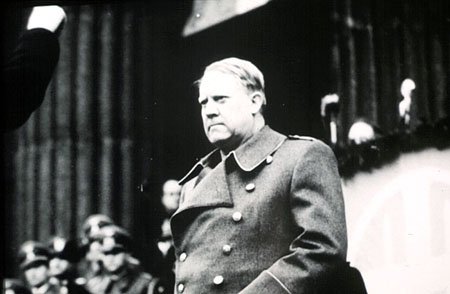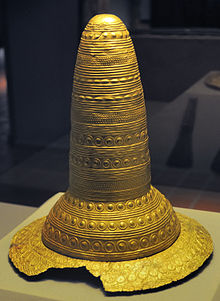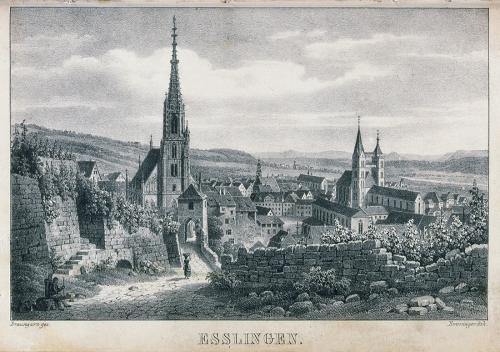
Here's a reader suggestion from @_mattl - with so many people calling each other a 'quisling', what does that actually mean? Well, here's a brief overview of the man whose name has become synonymous with 'traitor'. /1 

Vidkun Quisling was born in Norway in 1887. Relatively comfortable childhood, went and served in the military, got posted to the Soviet Union as a diplomat, then the Ukraine (where he met two of his wives). After the dust of WW1 settled, he went back to Norway... /2
At first he flirted with communism - just like a few other famous right-wing leaders - then increasingly found himself drawn to right-wing politics. He poured his holdings into setting up reactionary right-wing movements to fight Bolshevism. /3 

In the early thirties he served in government as the Minister for Defence, but it was clear his dreams were bigger - he was known for brutally suppressing labour movements, making lists of suspected insurgents, typical wannabe strongman stuff. He was, however, efficient. /4
In 1933, Quisling turned one of his popular movements into an openly fascist party, the Nasjonal Samling, or 'National Assembly'. For their first ever election, they came fifth, which gave them some influence in the Norwegian Parliament, but not as much as Quisling hoped /5 



With the Najonal Samling on the periphery, and war looming, Quisling turned to Hitler, trying to drum up support for Nazi Germany across Norway. He was invited to meet Hitler, and passed on information about Norwegian defence capabilities to Nazi intelligence organizations. /6 

In April 1940, Nazi Germany invaded Norway. This was Quisling's big chance. He led a coup, going on radio & proclaiming himself pro-Nazi Prime Minister. He halted Norwegian opposition to invasion forces. The next day, he asked King Haakon to grant him power. Haakon refused. /7
Haakon told his cabinet, and the people to keep fighting, keep resisting. Suddenly, Quisling didn't have any power, and was pushed to the side - sent to Germany while a new regime was formed. /8
Later in the year, with the dust settled, Quisling was brought back to Norway to act as the Prime Minister in civil matters, working alongside a German administrator, Josef Terboven. Nasjonal Samling were brought into Parliament. Two years later, he would have sole control. /9 

During Quisling's tenure, he oversaw the construction of concentration camps, the deportation of hundreds of Jews and harsh suppression of communist and labour movements. He attempted to draft all children into a Hitler Youth-like organisation, but had to back down. /10 

In 1945, as Allied forces approached, Quisling was horrified at the acts of retreating Nazi forces, and felt betrayed by the power he'd worked so closely with. When defeat was inevitable, he negotiated his own surrender to the new authorities. /11
Quisling was charged with conspiring with the Nazis, as well as a number of murders carried out during his tenure as leader. After a trial of just under three weeks, he was found guilty on most of the charges. /12
Vidkun Quisling faced a firing squad at the Akershus Fortress in Oslo on the 24th of October, 1945. /13 

As I said at the beginning, the name 'quisling' has become synonymous with 'traitor', but I feel it's a bit more nuanced that that - there's an element of idealistic naivety and being taken advantage of, by larger, more aggressive interests. /14
At a time of such political turmoil, you might well think there are a few people who hitch their wagons to rather dark and shady forces, hoping to push their particular ideological agendas. As for me, I couldn't possibly comment. /FIN
• • •
Missing some Tweet in this thread? You can try to
force a refresh



















